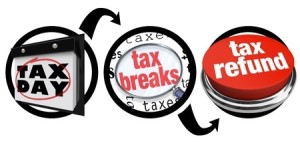The Tax Court of New Jersey recently clarified the standard for determining whether a tax-exempt religious organization qualifies for a property tax exemption when the property is no longer used for worship services. The court’s decision in Borough of Hamburg v. Trustees of the Presbytery of Newton is particularly useful given the number of recent church closures in New Jersey.
The Facts of the Case
The Borough of Hamburg sought to overturn the judgment of the Sussex County Board of Taxation (County Board) granting a property tax exemption to the Trustees of the Presbytery of Newton (Presbytery) under the religious use provision of N.J.S.A. 54:4-3.6. The Presbytery is a tax-exempt religious organization formed under section 501(c)(3) of the Internal Revenue Code, and maintains a church building and a manse in the Borough of Hamburg. 
In recent years, the use of the Subject Property has declined. In tax documents submitted to the municipality, the Presbytery acknowledged that the church and manse had not been used for weekly worship services or as living quarters since 2010. However, it stated that the property continued to be used for storage purposes, citing that the church housed artifacts including the pulpit, organ, baptismal font, Bibles, church bell, religious garments, and hymnals, while the manse was used to store church records. In addition, the Presbytery stated that it allowed The Foundation for Peace, a non-profit charity, to store goods used in its mission work in South America.
On December 19, 2012 the Borough’s tax assessor issued a letter denying the Presbytery’s request for tax-exempt status of the Subject Property for tax year 2013. The Presbytery appealed to the County Board, which granted tax-exempt status to the Subject Property, finding that the Presbytery satisfied the requirements of the religious use exemption pursuant to N.J.S.A. 54:4- 3.6. The Borough appealed to the Tax Court of New Jersey.
The Legal Background
The Supreme Court of New Jersey has established the following test for whether a property qualifies for exemption under N.J.S.A. 54:4-3.6.: (1) the owner of the property must be organized exclusively for the tax-exempt purpose, (2) the property must be actually used for the exempt purpose, and (3) the operation and use of the property must not be conducted for profit. This case centered exclusively on whether the property is actually used for a tax-exempt purpose
The Court’s Decision
The court affirmed the County Board’s judgment granting the property tax exemption to defendant. It concluded that the Presbytery actually used the Subject Property for its religious purpose, thus satisfying the requirements for exemption under N.J.S.A. 54:4-3.6.
It reaching its decision, the court highlighted that there is no requirement in N.J.S.A. 54:4-3.6 that worship services must be offered in order to qualify for exemption. As further explained in the opinion:
The court finds that the testimony during trial adequately established that a substantial quantity of religious artifacts were stored in the Church. Based on the size and quantity of these artifacts, no reasonable storage alternative was available to the Church. Further, the use of the Church to store goods in connection with the Foundation for Peace is a valid charitable purpose that advances the religious mission of the Presbytery.
For more information about this case or the legal issues involved, we encourage you to contact a member of Scarinci Hollenbeck’s Government Law Group.
